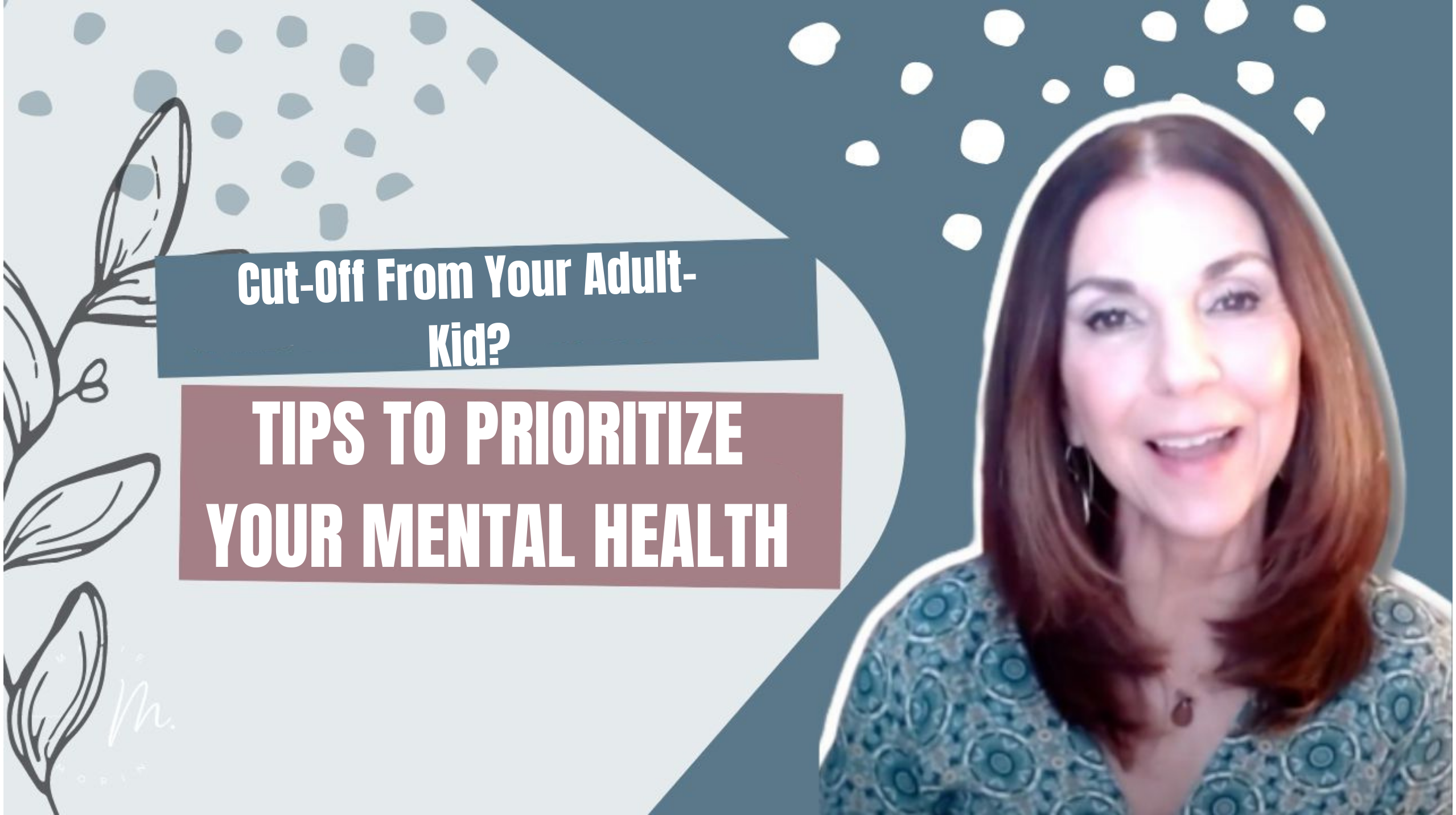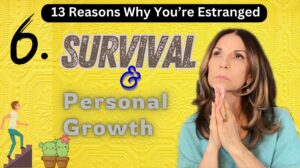As Mother’s Day and Father’s Day approach, it might be a particularly difficult time for parents experiencing adult-child estrangement. The emotional toll of estrangement can be challenging during these holidays, as parents may feel a sense of exclusion or grief over the lost connection with their child. Estrangement is a prevalent issue that affects many families worldwide, and its impact on mental health cannot be overlooked, especially for parents who experience the breakdown of their relationship with their adult children. This article discusses Estrangement And Your Mental Health with 5 Tips for Parents of Cut-off Adult Kids.
How Does Estrangement Impact Your Mental Health?
- Feelings of guilt and shame: When a parent experiences estrangement from their adult child, they may feel responsible for the breakdown in the relationship, even if they believe they did nothing wrong. This can lead to feelings of guilt, shame, and a sense of failure as a parent. These feelings can be intense and overwhelming, causing the parent to question their self-worth and ability to maintain healthy relationships. In this situation, parents must remember that estrangement is often a complex issue involving many factors, and it’s not always the parent’s fault.
- Anxiety and depression: The worry and stress associated with estrangement can lead to anxiety and depression in parents. They may worry about their child’s well-being or future and constantly replay memories or events that led to the estrangement. This can result in a constant state of worry and anxiety, leading to feelings of hopelessness and despair. In severe cases, it may even lead to depression, causing parents to withdraw from others and lose interest in activities they once enjoyed.
- Loss of identity and purpose: For many parents, their identity and purpose are tied to their role as a parent. When their child becomes estranged, they may feel like they have lost a significant part of themselves and their purpose in life. This loss can cause parents to struggle with their sense of self-worth and find new ways to define themselves outside their role as a parent. It can be a difficult and painful process, but parents need to remember that they are more than just their role as a parent.
- Physical symptoms: The mental health impacts of estrangement can also manifest as symptoms such as insomnia, headaches, and other physical symptoms associated with stress and tension. Insomnia, or difficulty sleeping, is one of estrangement’s most common physical symptoms. When someone struggles with negative emotions, they may find it difficult to relax, fall asleep, or wake up frequently at night. This can result in daytime fatigue and difficulty concentrating, further exacerbating their emotional distress. When someone feels overwhelmed, their body may respond with physical tension, which can cause headaches, muscle aches, and other discomforts. Chronic stress and anxiety can weaken the immune system, making an individual more vulnerable to illness and disease.
It’s important to note that everyone responds differently to estrangement, and some individuals may experience more severe physical symptoms than others.
Additionally, physical symptoms can be caused by various factors, and it’s important to rule out any underlying medical conditions before attributing them solely to estrangement.
- Grief and waves of anger: A broken and strained relationship can evoke feelings of anger at their adult child or themselves. Anger is a powerful emotion that signals deep hurt. Anger serves to protect individuals from feeling sadness and provides a distraction from feelings such as rejection, disappointment, and abandonment. Physiological sensations include a racing heart rate and increased breathing rate. Stress, rage, and frustration are part of angry feelings. Strong feelings can be so overwhelming that one can feel guilty for having these sensations and spiral even further.
How Do Parents Cope And Prioritize Mental Health?
- Acknowledge your feelings and seek support: Do your best to acknowledge and accept the emotions that arise when coping with estrangement. Find a trusted friend, family member, or professional who can provide a listening ear and support. Joining a support group or online community can also help find a sense of belonging and validation.
- Set boundaries and communicate: It’s essential to set boundaries with the estranged family member and share your needs. This may involve you setting your ground rules for communication. Be honest and assertive in expressing your feelings and expectations.
- Practice self-care: Prioritize self-care and plan activities that replenish your energy and well-being. Self-care can take many forms, and it’s important to find activities that work for you and that you enjoy. One helpful approach is to identify activities that bring joy and peace, such as hobbies, exercise, or mindfulness practices, and make time for them in your daily routine. Hobbies can be a great way to engage in an activity that brings a sense of accomplishment and satisfaction while also providing a distraction from negative thoughts and emotions. Exercise is also an effective way to reduce stress and tension in the body, releasing endorphins that promote feelings of well-being.
Self-care also involves taking care of your physical needs, such as getting enough sleep, eating a balanced diet, and staying hydrated. These basic needs are essential for maintaining good physical and mental health, and neglecting them can exacerbate stress and tension.
- Focus on the present: Focus on the present moment and engage in activities that bring a sense of mindfulness. Mindfulness practices, such as meditation or yoga, can ground you in the present moment. Practicing present-moment awareness can reduce stress and anxiety and cultivate greater peace and well-being. Over time, you can better manage difficult emotions and navigate challenging situations more easily.
- Consider therapy or counseling: If coping with estrangement affects your mental health, mental health professionals can help you process your feelings and develop coping strategies. They can also provide a safe and supportive space for you to explore your feelings and work through the challenges of estrangement.
Conclusion:
Coping with estrangement can be a challenging and emotional experience for parents, especially during holidays centered around being a parent. However, prioritizing your mental health and well-being can help you navigate this difficult time. Remember that seeking support is a sign of strength, not weakness and that you are not alone. If you’re a parent struggling with estrangement, implement the five self-care tips mentioned above and contact a mental health professional for additional support.





